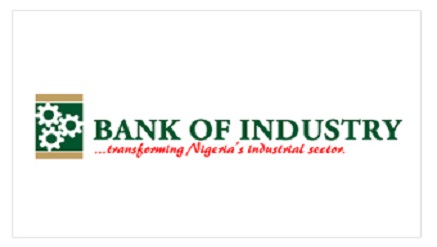E-Financial
International Remittances to Exceed $600bn in 2018 – Report

International digital peer-to-peer remittances conducted via mobile and online platforms will exceed $300 billion globally by 2021, up from an estimated $225 billion in 2018, says a new study from Juniper Research.
The report titled Digital Money Transfer & Remittances: Domestic & International Markets 2018-2022, estimates that total international remittances via formal channels will exceed $600 billion in 2018.
This means that international remittances conducted via mobile and online services will be 36% of formal remittance by value in 2018, growing to 44% by the end of 2021, it says.
The World Bank estimates that global remittances will grow by 3.4% to $616 billion in 2018.Sub-Saharan Africa, with an average cost of 9.1%, remains the highest-cost region, it says.
Global money transfer company Xpress Money, says various African countries rely heavily on remittances to maintain their national gross domestic product. It notes remittances are the continent’s second-largest source of foreign inflows after foreign direct investment.
To facilitate convenient remittances, Africa has always been at the forefront of innovative payments solutions, and one of the earliest adopters of mobile wallets, it notes.
While the region is witnessing a regular growth in remittances, the costs, compared to the rest of the world, remain high, it notes.
Fadzai Deda, best practices research analyst for Frost & Sullivan, says international remittances present a growing opportunity for mobile money service providers as their business models allow them to offer remittance services more cost-effectively than mainstream money transfer operators (MTOs).
The emergence of digital remittance providers in the country offers people reliable and cheaper alternatives that facilitate low-value transactions, which are not viable through MTOs, she says.
Deda points out in recent years, the remittances market has been disrupted by the expanding application of mobile technology and the growing availability of broadband networks.
Emerging fintechs such as such as Mukuru and MamaMoney, popular for sending money from South Africa to neighbouring countries, are taking advantage of the pervasiveness of mobile, she adds.
Also, SA is the only country on the continent from which money can be sent through WorldRemit to other countries on the continent, says Deda. Technology providers like MFS Africa and TerraPay are also playing an essential role in driving the development of digital remittances on the continent, she adds.
Increasing smartphone penetration will drive the volume of online remittance services that enable the transfer of remittances to mobile money wallets, notes Deda. In time, it is expected that there will be a range of partnerships between MTOs, mobile money wallet providers and online money transfer providers, she adds.
The Juniper research notes that traditional money transfer operators are expanding their digital footprint and benefiting from their much-delayed expansion into digital payments.
It forecasts that the combined market share for the top four money transfer operators will continue to increase over the next four years, reaching 39% of total formal remittances by 2022.
Meanwhile, digital-only challenger players such as TransferWise and Xoom are witnessing slow, but increasing market share and revenue growth, says Juniper. The report expects combined market share of these digital disruptors, in terms of formal remittance transactions processed, will increase from 2.5% in 2015 to 12% in 2018.
The Juniper also predicts blockchain will have a significant role to play in the future evolution of transaction settlement solutions, with almost one in three of the proposed use cases for blockchain revolving around settlement and payments.
Sudhesh Giriyan, COO for Xpress Money, says countries like Nigeria are opening doors to blockchain technology to better various aspects of governance and business, including remittances.
“The adoption of technology will surely bring a whole new era of inclusion to the previously unreachable population. The next few years are going to be interesting.”
E-Financial
CBN Expresses Concern Over Foreign Investments in Nigeria Fintechs

The Central Bank of Nigeria in its 2025 Fintech Policy Insight Report, has raised concern over Nigeria’s fintech sector heavily dependent on foreign investment, exposing it to swings in global markets.

The report said the sector has shown resilience despite global economic pressures, but warned that reliance on external capital leaves it vulnerable to market fluctuations.
It would be recalled that startups in the country raised $520m in equity funding in 2024, down from about $747m in 2019, when Nigeria captured roughly 37 per cent of all African startup investment.
This performance, amid significant global macroeconomic gyrations, underscores Nigeria’s position as a key hub for financial innovation. The sharp rise in interest rates in advanced economies during 2022 contributed to a slowdown in venture capital funding.
“These dynamics highlight the importance of developing domestic funding avenues, such as leveraging Nigeria’s capital markets, to reduce currency risk and sustain fintech growth,” the apex bank stated.
Olayemi Cardoso, CBN Governor, said Nigeria is undergoing a rapid and significant financial evolution. Over the past decade, the nation’s fintech landscape has grown from a handful of startups into one of Africa’s most vibrant innovation ecosystems.
“Even amid global economic headwinds, Nigerian fintech firms continued to attract investment and drive change. Today, with improved stability of our currency and domestic economy, it is clearer than ever that financial innovation can advance inclusion at scale,” the executive commented on the report.
In addition to funding, the central bank underscored Nigeria’s continued leadership in digital financial infrastructure. More than 25 per cent of all electronic transactions in Africa’s most populous nation are processed via real-time payment channels, with close to 11 billion transactions processed in 2024, up from five billion in 2022. The report described Nigeria’s instant payments platform, NIBSS NIP, as among the most mature and widely adopted globally.
The report also mentioned the need to strengthen system integrity and reputation, pointing to compliance reforms, anti-money laundering supervision, and consumer protection measures as key priorities for sustaining investor confidence.
By focusing on domestic funding, regulatory modernisation, and innovation infrastructure, the CBN aims to position Nigeria not only as a fintech front-runner but also as a rule-setter whose regulatory lessons are relevant to peer emerging and high-growth economies globally, the central bank said.
Stakeholders surveyed by the CBN also cited compliance costs as a significant challenge to innovation. According to the report, 87.5 per cent of respondents said that the cost of meeting regulatory and risk requirements significantly impacts their capacity to innovate, while delays in product approvals and regulatory timelines also remain major bottlenecks.
The report noted that 62.5 per cent of fintech firms plan to expand regionally, and there is strong support for regulatory pass-porting frameworks to enable compliant expansion into other African markets. However, the CBN warns that such cross-border growth requires a stable funding base and coordinated regulation.
E-Financial
UBA’s Easy and Instant Account Opening Thrills Returnee

After a few years abroad, I returned to Nigeria and faced a dilemma. Let me tell you all about it.

UBA
A few days ago, I was dragging my luggage through Murtala Muhammed International Airport. Everything felt bright and beautiful. Not necessarily in aesthetics, but in the vibrant colours, sounds, and energy all around. After three intensive years in the UK, I was finally back home. Ready for the hustle and bustle of Lagos life, and yes, the comfort of my parents’ home.
The plan was simple. Settle down and get my life on track. I’d sorted the job, and I had my person. But then came my dilemma. Money!. This doesn’t mean I was short of it or had too much of it. The real issue is where to actually keep and manage it in this country with daily dramatic happenings. With just two weeks left before I resumed at my new workplace, I had no time for long queues, endless paperwork, or the classic “Nigeria bank stress.” So, I needed an account, and I needed it fast.
So I turned to my best friend, Google, and typed, “Instant account opening in Nigeria.”
In less than a second, I was redirected to the United Bank for Africa instant account opening portal. A few taps later, and I had a fully functional account. Just like that. I could receive my funds, transfer my funds, and start building my financial life here again.
In less than a second, I was redirected to the United Bank for Africa instant account opening portal. A few taps later, and I had a fully functional account. Just like that. I could receive my funds, transfer my funds, and start building my financial life here again. Talk about ease, and this beautiful experience truly exemplified that definition
I was genuinely amazed. It felt too easy, almost suspiciously easy. But it was real, I mean, really soft like they were just thinking all about me while developing this new feature.
If you’re like me and pressed for time, avoiding unnecessary stress, or just ready to sort your finances without the hassle, consider this your sign.
UBA’s instant account opening is a game-changer. No queues to cut into your precious time. Just you and your phone, minutes away from being banked.
Get started here: https://aop.ubagroup.com
Trust me, if I could do it between unpacking and settling in, you can do it too. Your future self will thank you.
E-Financial
BOI Secures CBN Nod for Sharia Banking, Unlocks Ethical Funding Boom

Bank of Industry (BOI) has received Central Bank of Nigeria (CBN) approval to launch a Non-Interest Banking (NIB) Window, expanding ethical financing for underserved businesses nationwide.

BOI
The move positions BOI to mobilise Sharia-compliant funds, finance assets and raw materials without interest, and target MSMEs plus high-impact sectors previously sidelined by conventional loans.
Divisional Head of Public Relations, Theodora Amechi, said the window aligns BOI with social goals, boosting real economy support and sustainable industrial growth.
MD/CEO Dr. Olasupo Olusi hailed it as a “pivotal moment,” enabling the bank to serve faith-sensitive enterprises shunning riba-based loans.
Analysts see it as CBN’s vote of confidence in BOI’s governance, set to spur innovation and inclusive financing for Nigeria’s ethical business segments.
Established in 1959 as Nigeria’s top Development Finance Institution, BOI now strengthens its drive for broad-based economic transformation.

 General News3 days ago
General News3 days agoGlobacom Donates ₦1Bn to Lagos State Security Trust Fund

 Telecom3 days ago
Telecom3 days agoAirtel Nigeria Commits to Upgrade of its Network Infrastructure for Improved Quality of Service

 E-Business3 days ago
E-Business3 days agoPwC Reveals AI Scaling Gap Slows Africa’s Digital Transformation

 E-Financial3 days ago
E-Financial3 days agoEcobank Profit Jumps 29 Percent to N950Bn

 News3 days ago
News3 days agoCIoD, NIPSS Partner to Deepen Governance, Leadership Standards

 News3 days ago
News3 days agoNRS Chairman Outlines Ways Nigeria can Move from Potential to Economic Prosperity

 General News3 days ago
General News3 days agoWIEG to host Nigeria’s first International Investment Summit in Lagos

 News3 days ago
News3 days agoTrump Says He Made no Mistake Sharing Video Depicting Obamas as Apes



























